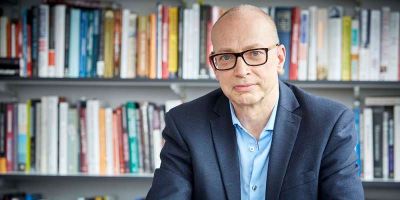Recent alumni, Desideria Benini, writes blog for WaterAid
Desideria Benini's blog article is based on research undertaken for her MA dissertation in the School of Politics and International Studies in partnership with WaterAid.
In the blog piece entitled The gendered impacts of the COVID-19 pandemic on women and girls, Desideria discusses “how the water, sanitation and hygiene (WASH) sector includes gender in its response to emergencies, and why this matters”.
We spoke to Desideria about why she applied for the dissertation partnership project, her experience of the research and the influences and impacts of Covid-19.
What made you want to apply for the partnership project?
When I first heard about Lata Narayanaswamy’s dissertation partnership project, I thought it was exactly what I was looking for. First of all, I sincerely wanted my dissertation to address real-world issues and serve a higher purpose than simply to obtain a good grade. Secondly, it allowed me to gain hands-on experience in development practice within a real NGO while still studying. Finally, seeing WaterAid among the partner organisations definitely convinced me to apply, as WaterAid is an international non-profit I particularly admire, working in a sector (i.e. WASH) that has always interested me.
How did you find your dissertation research process?
It has been an incredibly challenging journey, but in hindsight, it was worth it. Complications arose from the very beginning, not least because of Covid-19. To illustrate, the dissertation’s proposal I submitted in February centred on female genital mutilation and the impact of the practice on WASH access. However, following the virus outbreak, I understood WaterAid’s priorities had shifted. As I longed for my dissertation to be useful for the organisation, I offered my WaterAid supervisor a change of topic to research on a more relevant and pressing issue, and she welcomed my proposition.
Focusing the study on WASH, emergencies and gender became immediately evident since she revealed how challenging it was for the organisation to incorporate a gender and inclusion lens into emergency planning while under the pressure of responding quickly to the changing circumstances. This new subject matter seemed even more appropriate after discovering that WaterAid’s East-Africa office was planning to research the impact of Covid-19 on gender and inclusion in the region in collaboration with FEMNET, a pan-Africa feminist network.
At that point, our partnership included me (back in Italy), my academic supervisor in Leeds, two WaterAid’s officers based both in London and Uganda, and a team of researchers from FEMNET. In addition to strengthening my research skills, this partnership allowed me to develop greater professionalism and time-management skills, learning how to work effectively with multi-region teams.
My interest in WASH and my passion for gender justice, combined with my drive to deliver research that would matter in the real world, motivated me throughout the entire period.
What were the outputs of the project?
On top of obtaining a great academic achievement, the research’s dissemination period ultimately rewarded me for my hard work. I felt honoured for the opportunity to give a presentation to WaterAid’s professionals on my findings at an organisation-wide webinar.
However, it was writing this blog for WaterAid’s website, and then sharing it on social media, what allowed me to present my research to a wider public and see people engaging with my work and appreciating it. My WaterAid supervisor has recently told me that the blog has been a great success in terms of the number of readers, which has confirmed to me that hard work pays off.
All in all, I am proud of having been involved in this amazing project and most importantly that my research could contribute to support gender equality in WASH and bring women’s perspectives within the conversation on the Covid-19 response.




